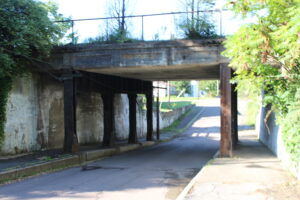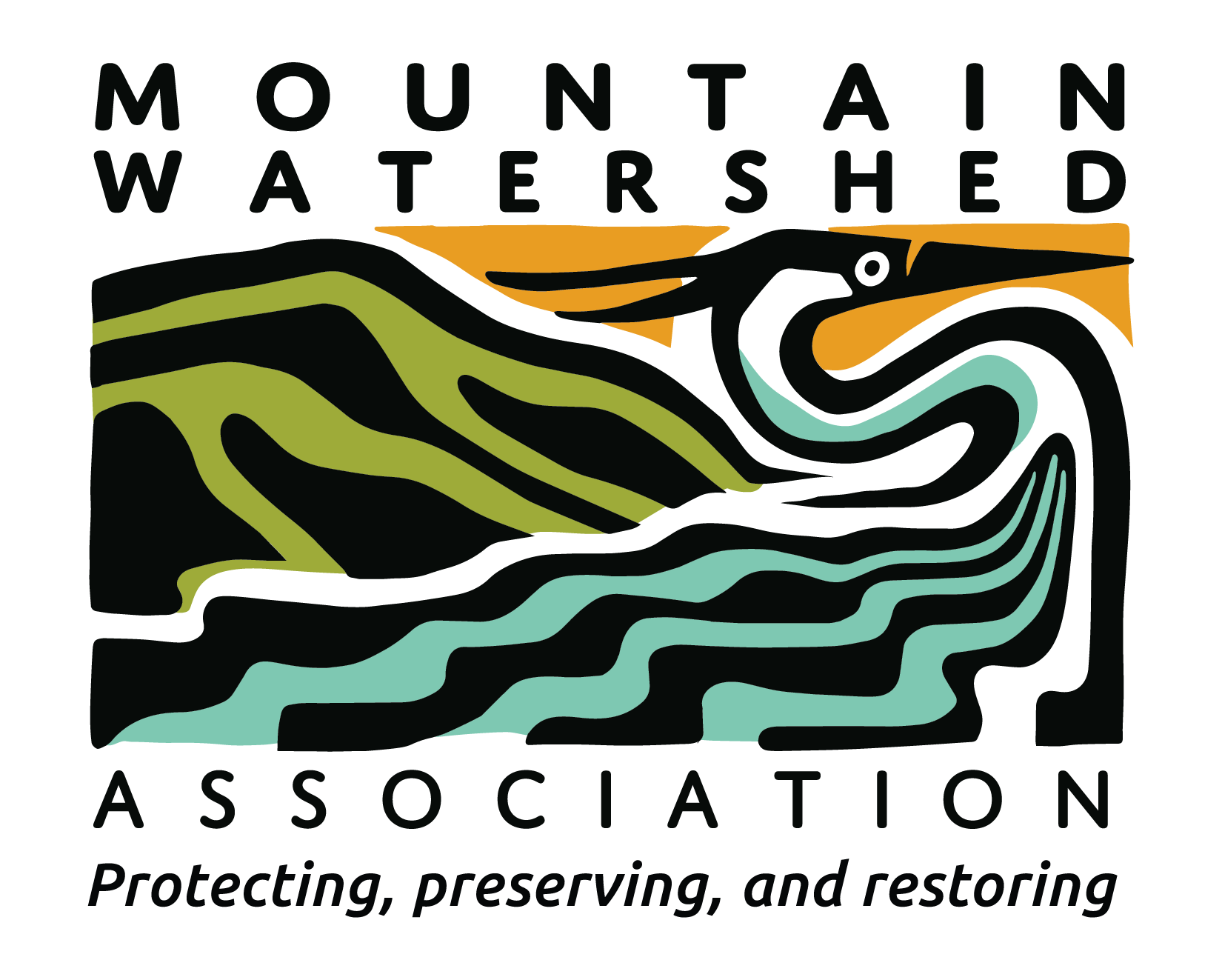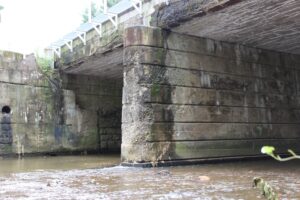Today we joined Waterkeeper Alliance, ForestEthics and a national network of Waterkeeper organizations today in releasing a new investigative report exploring the condition of our nation’s rail infrastructure. From July – September 2015, Waterkeepers from across the country documented the structural integrity of 250 railway bridges along known and potential routes of explosive oil trains, capturing the state of this often neglected infrastructure in their communities.
The Waterkeepers identified areas of concern with 114 bridges, nearly half of those observed. Photos and video footage of the bridges inspected show signs of significant stress and decay, such as rotted, cracked, or crumbling foundations, and loose or broken beams. Waterkeepers were also present when crude oil unit trains passed and observed flexing, slumping and vibrations that crumbled concrete. In the Youghiogheny River watershed, bridges over the river itself and several tributaries including Mount’s Creek in Connellsville and Laurel Hill Creek in Confluence showed visual signs of deterioration.
This effort was initiated out of concern for the threat posed by the 5,000 percent increase in oil train traffic since 2008. Oil train traffic increases both the strain on rail infrastructure, as well as the likelihood of a rail bridge defect leading to an oil train disaster resulting in oil spills, fires and explosions. Oil trains travel the length of the Youghiogheny River in Pennsylvania where they pass within a stone’s throw of several drinking water intakes, habitat for sensitive species, major tourist attractions, and exceptionally high quality waters including important headwater streams
A review of safety standards for rail bridges revealed that the federal government cedes authority and oversight of inspections and repairs to railway bridge owners. Overly broad federal law, lax regulations, dangerously inadequate inspections and oversight, and a lack of authority compound the threat from oil trains. The 2008 federal law and subsequent DOT standards regulating safety of rail bridges leaves responsibility for determining load limits, safety inspections, and maintenance with rail bridge owners.
The groups are calling for immediate, decisive action by the federal government on this issue. “What the Waterkeepers have captured shines a light on the need for immediate, independent inspections of all rail bridges that carry explosive oil trains,” said Marc Yaggi, executive director of Waterkeeper Alliance. “People deserve to know the state of this infrastructure and the risks posed by oil trains rolling through their communities.”
ForestEthics has calculated that oil trains directly threaten the life and safety of 25 million Americans living inside the blast zone, which is the one mile evacuation zone in the case of an oil train fire. The drinking water supplies for tens of millions more are also at risk. This report attempts to alert communities about this risk, and calls for nationwide action and reform of rail safety standards.
 “Oil trains in the Yough watershed threaten high quality waters, iconic public lands, habitat for sensitive species, and countless small communities,” said Krissy Kasserman, Youghiogheny Riverkeeper. “Poorly maintained bridges increase the likelihood of a derailment, and the very least railroad companies could do is ensure their bridges are structurally sound.”
“Oil trains in the Yough watershed threaten high quality waters, iconic public lands, habitat for sensitive species, and countless small communities,” said Krissy Kasserman, Youghiogheny Riverkeeper. “Poorly maintained bridges increase the likelihood of a derailment, and the very least railroad companies could do is ensure their bridges are structurally sound.”


